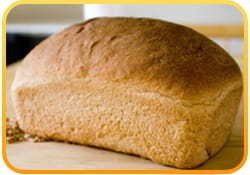For Both Men And Women...
Below is an interview that I did with world-famous trainer and Men's Health Magazine Training Advisor, Craig Ballantyne as he grilled me on the top secrets for fat loss and six pack abs. Check it out...
CB: Mike, give us a brief background about yourself
MG: Sure Craig. Well, I'm currently a Certified Nutrition Specialist and a Certified Personal Trainer. I've been dedicated to improving my knowledge of fitness, both training techniques and nutrition aspects, for over 15 years now, and I never stop trying to learn more each and every day. I've also been a contributing writer for Muscle & Fitness Hers Magazine, and I'm the author of the popular internationally-selling book, "The Truth about Six Pack Abs" which has had hundreds of thousands of readers in over 150 countries currently.
I just love helping people with this area of their lives, as not only does it improve their outward appearance and confidence, but more importantly, improves how they feel and their internal health, helping them to live longer and healthier lives. It's something I'm very passionate about.
CB: Okay, so where does the average man or woman go wrong when it comes to training abs?
MG: Ok, most people are probably going to be surprised with this answer. In their quest for 'six pack abs', the biggest mistake I see people making is wasting WAY too much of their time training their abs directly... pumping away with all kinds of different abs-specific exercises.
I'm sure you know what I'm referring to. The person is trying so hard to get those abs to show, that they're spending almost all of their time in the gym with hundreds of reps of various crunches, leg raises, twisting exercises, etc. Meanwhile, all of that wasted time directly training the abs could have been better spent on a properly designed full body workout program that would elicit a much better metabolic response and increase the fat-burning hormone levels in their body as well.
After all, losing the stomach fat that is covering the abs is the MOST important aspect for most people to finally be able to make their abs visible. Unfortunately, pumping away with hundreds of crunches and leg raises does NOT cause much of a metabolic or fat burning hormonal response. This is the main focus of my Truth about Six Pack Abs book... full body training programs and proper nutrition to strip off that stubborn belly fat and reveal the six pack that's hiding underneath!
Of course it wouldn't be an abs book if I didn't focus on ab development too, but I make sure firstly that the most important concepts for lasting body fat reduction are understood.
CB: Do you see any gender differences in mistakes they make? And more importantly, do you see any gender differences in the response to various types of ab training?
MG: To be honest, I don't really see any need for men or women to train differently. Bottom line... the best exercises are the best exercises regardless of gender.
However, in regards to mistakes I see between genders... Yes, I tend to see women more often are deathly afraid to use weight training with anything but really light weights. That is a shame, because THE most effective way to gain control over your body fat for life, is to maximize your lean muscle that your body carries, as well as working that muscle hard through intense resistance exercise regularly.
It's important for women to realize that regular strength training using heavier resistance will NOT "bulk them up" (as long as caloric intake is controlled), but rather is one of the key secrets for losing body fat and staying lean year-round. As a matter of fact, some of the leanest females that I've trained over the years are the ones that aren't afraid to work hard with the weights.
I also notice that most women (and a lot of guys too) spend way too much time with slow cardio exercise. This is simply not necessary, and the way I combine high intensity resistance training into full body routines provides enough of a "cardio" workout in itself usually. We'll get back to this in a minute though.
CB: What about ol' school sit-ups? Do you use these? Are they good, bad, or does it "depend"?
MG: Sit-ups are a controversial topic. I don't think they're good or bad per se, but rather "in between". I didn't include them in my program. I simply don't feel they are necessary, and I think there are much more effective abs exercises to focus on. Personally, I almost never do sit-ups except occasionally for a little variety every now and then.
CB: Give us a weekly sample ab training program. How many days per week? What are a couple of the best exercises you'd pick? How many sets? Reps? Rest?
MG: Well, first I'd like to point out that the full body movements that make up the majority of my programs indirectly work the abs and the entire "core" area to a fairly decent extent. However, I do include abs-specific exercises into the routines generally about twice per week. The "abs-specific" portion of the workouts generally only take about 5 minutes at most with very little rest between exercises.
Once people are past the beginning phase of gaining some initial ab strength, I try to get them away from the exercises that are too easy, where someone can do 50 or 100 reps, as is frequently common with standard crunches. Instead, I like to focus on higher resistance exercises that actually stimulate the muscle fibers to a much greater degree. One example of a higher resistance abs exercise is hanging leg raises with a proper "pelvic curl up".
It's funny but usually someone that has been wasting so much time with hundreds of reps of crunches can usually only do a few solid reps when they first attempt some of these higher resistance exercises. We also make sure not to neglect some rotational movements, as well as some work for the deeper muscles like the transversus abdominis.
CB: What do you use for burning fat, intervals or slow cardio? Or both? Any gender differences here? Or differences between fitness levels (beginner vs. advanced)?
MG: In most cases, my answer is definitely intervals... or as I like to call it "variable intensity training". In general, I think slow steady pace cardio is a waste of time, especially if the goal is lasting fat loss.
I think people need to get away from this thinking about "fat burning zones" and calories burned during the actual workout, and look at the bigger picture of what you're doing in your workout to stimulate the greatest metabolic response in your body... and the best metabolic and hormonal response is achieved through variable intensity training and strength training, not slow steady-pace cardio.
Now I will say that if someone is really deconditioned and can't handle higher intensity exercise routines just yet, this still doesn't mean that they can't simply use lower intensity routines, but still use it in a "variable intensity" fashion, by alternating between higher and lower exertion levels throughout the workout.
CB: And finally Mike, 1 or 2 of your top secret nutrition tips for carving out those abs. Open your vault of info!
MG: Well Craig, I think you'd agree that there has never been a more confusing time regarding proper nutrition for consumers. Every so called "expert" out there seems to disagree and contradict each other on what's the best way to eat for fat loss and overall good health.
One of the most important messages I try to teach my readers in this world of heavy confusion is that your diet doesn't need to conform to any of the fad diets... you don't need to go "low carb" or "low fat", or high or low anything for that matter to be successful in losing enough body fat to get lean enough to be able to see your abs. I like to try to simplify things for my readers. I think that balance is the key to success along with eating a diet that is made up of nutrient dense foods in their natural state (as unprocessed as possible).
In general, it is the heavy processing of foods that makes it wreak havoc inside our bodies. Most foods in their natural unprocessed state are inherently good for us. Of course there are always exceptions... a salad of poison ivy leaves is "natural and unprocessed" but certainly would not be good for us!
I'll leave your readers with a couple of the most important aspects of nutrition that help to get you lean for life...
1. Get enough quality protein in the daily diet - not only does it have a higher thermic effect than carbs and fat (so you burn more calories digesting it), but it also creates satiety so your hunger is satisfied longer. Plus it's a building block for maintaining and building lean muscle... And remember that the amount of lean muscle you carry is one of the main factors for controlling your metabolism.
2. Think fiber! When it comes to carbs, make sure that almost all of your carbohydrate intake is from higher fiber sources like vegetables, fruits, and high fiber unrefined grains. Try to avoid refined sugars and refined grains as that is one of the main reasons so many people struggle with body fat. I personally don't eat many grains as I prefer to get most of my carbs from veggies and fruits, but I do use sprouted grain breads fairly regularly too.
I generally recommend looking for carbohydrate sources that have at least 2-3 grams of fiber per each 10 grams of total carbs. Remember that fiber helps fill you up and also slows down the glycemic response of the foods you eat, all beneficial for getting lean.
3. Don't be afraid to eat fat! Many people try to go way too low on their fat intake and this can negatively affect hormone levels in your body as well as causing more cravings. Try to eat enough healthy fats daily.
Good sources are all nuts and seeds, nut butters, avocados, olive oil, organic meats and eggs, coconuts and virgin coconut oil. On that note, saturated fats from tropical oils are VERY misunderstood, even by many nutritionists and other health professionals. Yes they are composed highly of saturated fats, but are actually beneficial (but that's way beyond the scope of this article).
4. Avoid the two worst things in our food supply at ALL COSTS:
- artificial trans fats from margarines, shortening, and hydrogenated oils that are in most processed foods and deep fried foods
- high fructose corn syrup, which is in almost all sweetened products on the market
Again, if you avoid processed foods, it becomes easy to avoid these two worst offenders in our food supply.
I always contend that once you get a handle on these 4 main points of your diet detailed above, the rest starts to take care of itself as you gain control over your appetite, blood sugar levels, hormone levels, etc. It all falls into place, and you eventually gain total control over how lean you want to get.
Source: Mike Geary, author - The Truth about Six Pack Abs, interviewed by Craig Ballantyne - CSCS, Men's Health Magazine Training Advisor


 You may know I've been called the anti-cardio guy before, but this week I'm back posing the question to you... Do you really need cardio training to get lean and in great shape? By the way, you'll see in a minute that I'm not really "anti-cardio", just "anti traditional cardio".
You may know I've been called the anti-cardio guy before, but this week I'm back posing the question to you... Do you really need cardio training to get lean and in great shape? By the way, you'll see in a minute that I'm not really "anti-cardio", just "anti traditional cardio".



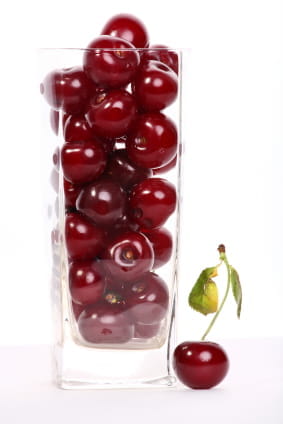 3. Tart cherries or tart cherry juice:
3. Tart cherries or tart cherry juice: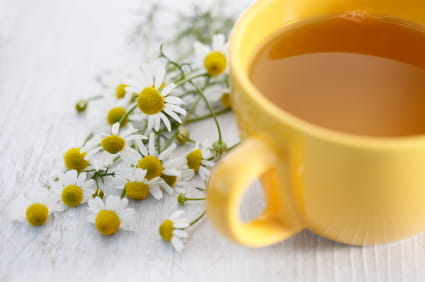 5. Night time teas:
5. Night time teas:
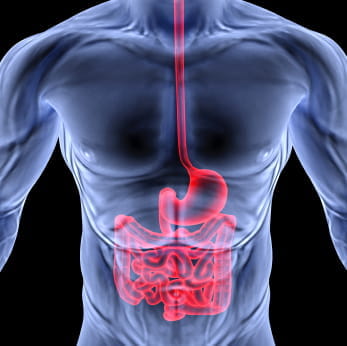 The interesting part of the study is that red wine was compared against equivalent servings of gin (equivalent alcohol serving) and none of the benefits mentioned above were seen in the group consuming the gin. This means the benefits were probably related to the polyphenols and resveratrol in red wine and not necessarily the alcohol content itself, although there is likely a synergistic effect of the alcohol and other compounds in red wine since the group receiving de-alcoholized red wine got less of a blood pressure benefit.
The interesting part of the study is that red wine was compared against equivalent servings of gin (equivalent alcohol serving) and none of the benefits mentioned above were seen in the group consuming the gin. This means the benefits were probably related to the polyphenols and resveratrol in red wine and not necessarily the alcohol content itself, although there is likely a synergistic effect of the alcohol and other compounds in red wine since the group receiving de-alcoholized red wine got less of a blood pressure benefit..jpg) Most people aren't aware that when you cook meat (whether it's grilled, broiled, or seared) there are carcinogenic compounds that can form called HCA's (heterocyclic amines). Now don't panic...you ingest various carcinogens all the time, even with some vegetables. You can always protect yourself with more antioxidants.
Most people aren't aware that when you cook meat (whether it's grilled, broiled, or seared) there are carcinogenic compounds that can form called HCA's (heterocyclic amines). Now don't panic...you ingest various carcinogens all the time, even with some vegetables. You can always protect yourself with more antioxidants.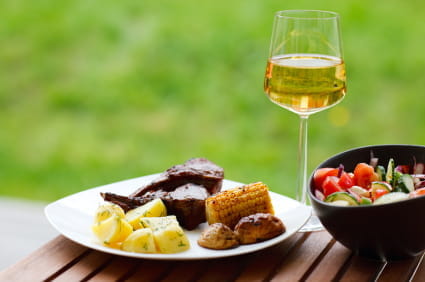 One more important point about grilling meat:
One more important point about grilling meat: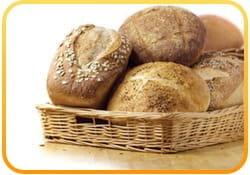 Due to biochemical reactions in your body that occur with every type of food you eat on a daily basis, some foods age you FASTER than your real age, while other foods help to FIGHT aging.
Due to biochemical reactions in your body that occur with every type of food you eat on a daily basis, some foods age you FASTER than your real age, while other foods help to FIGHT aging.
